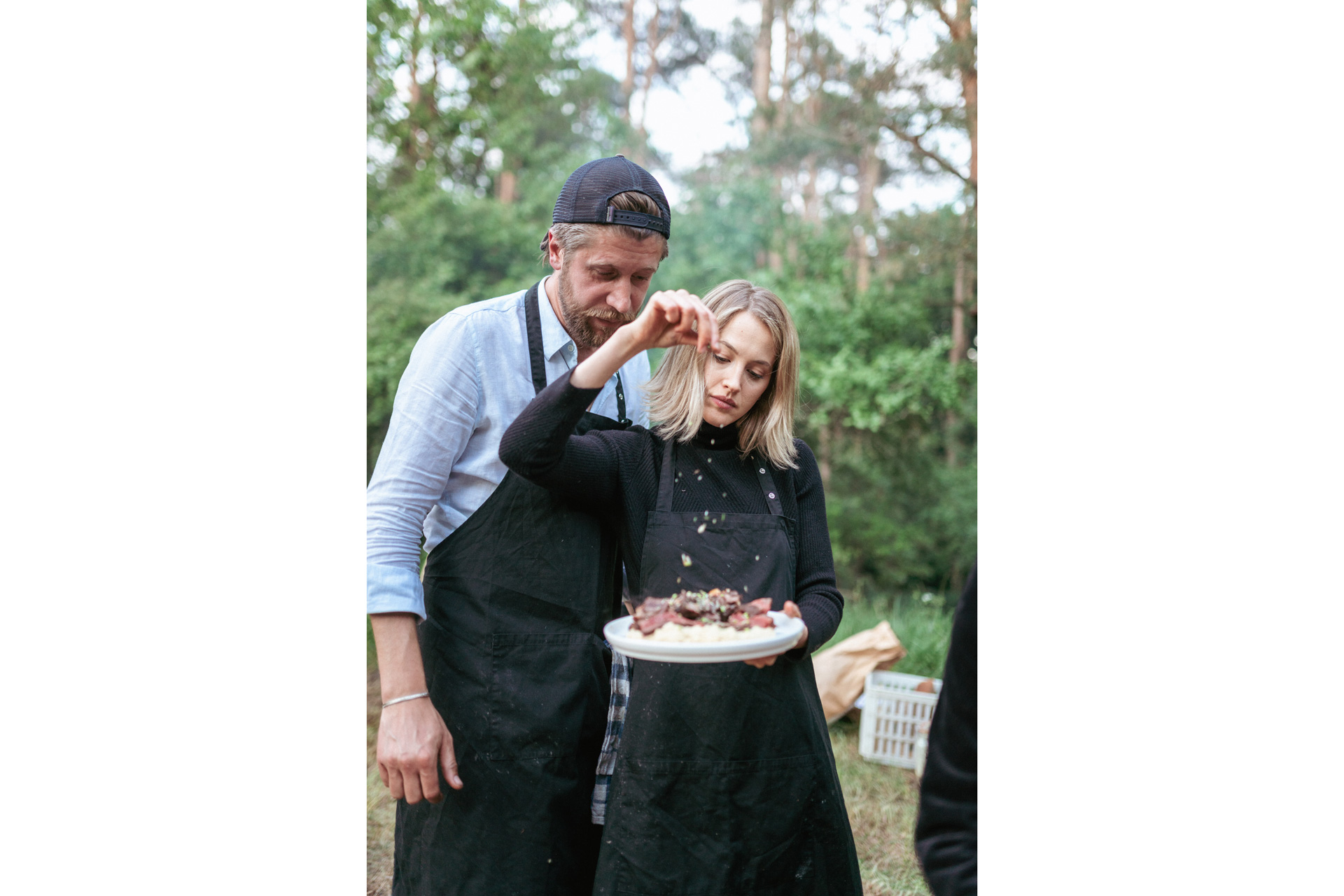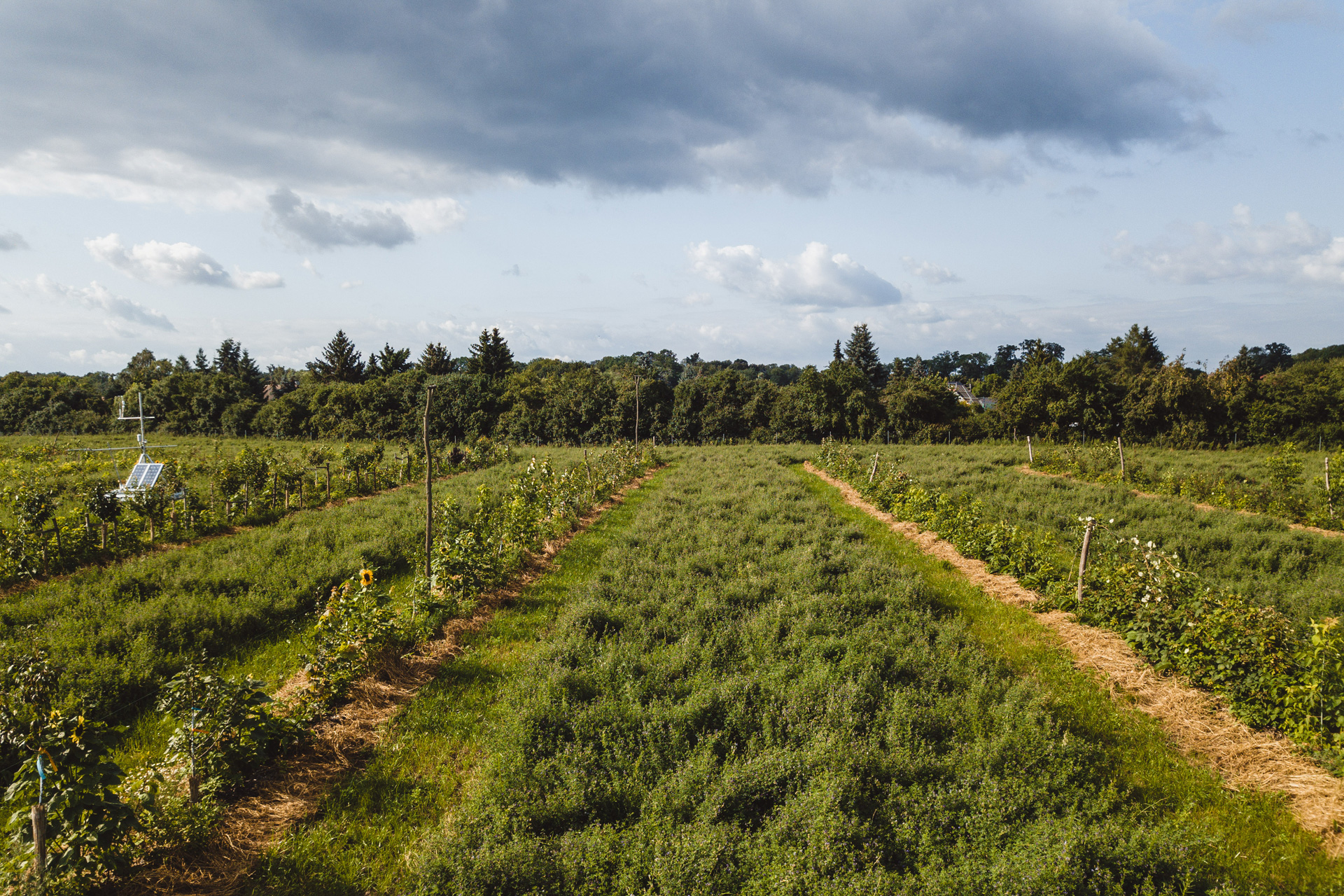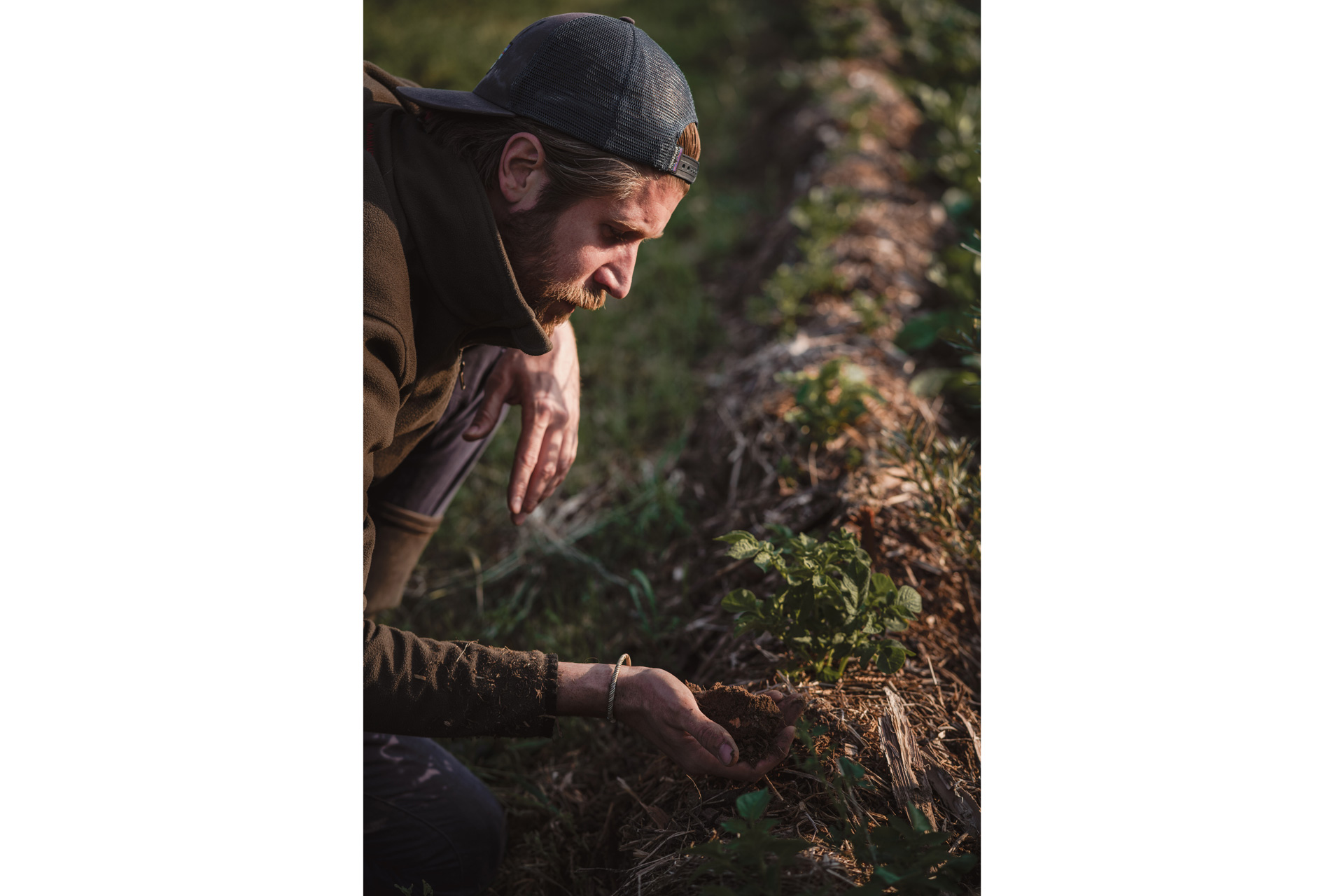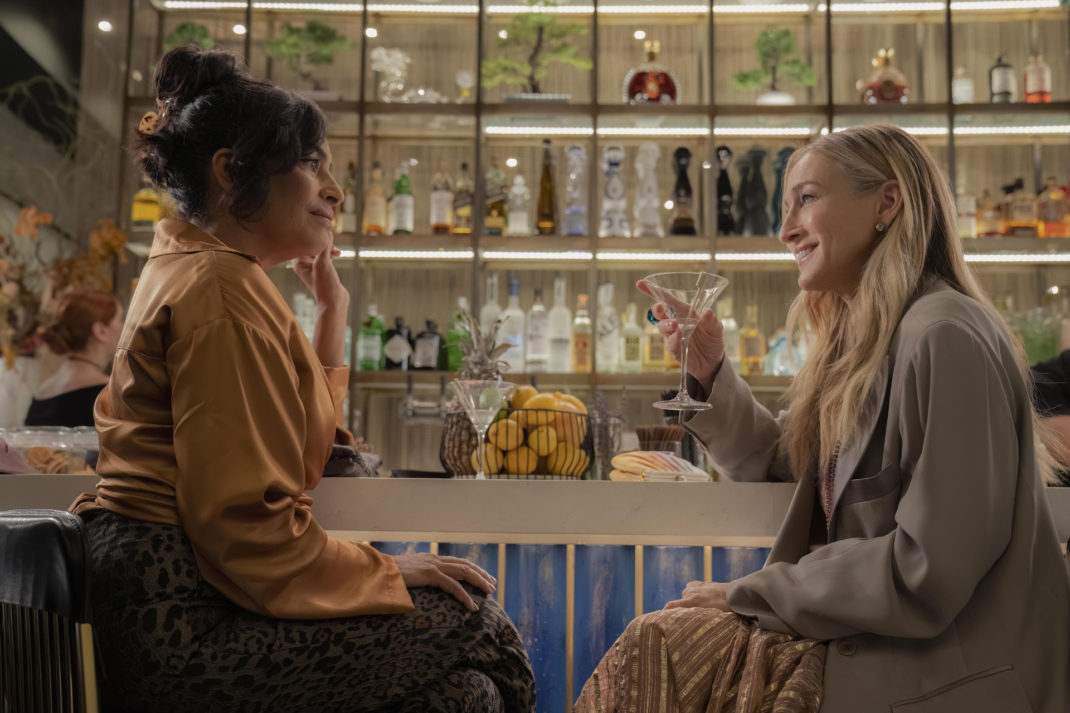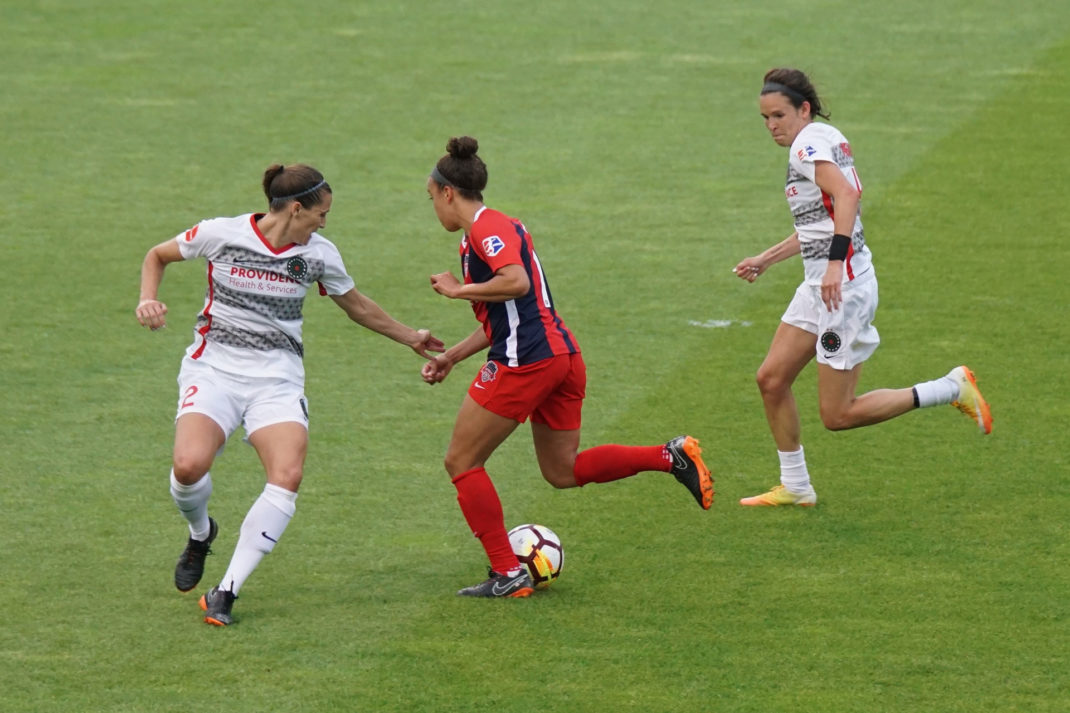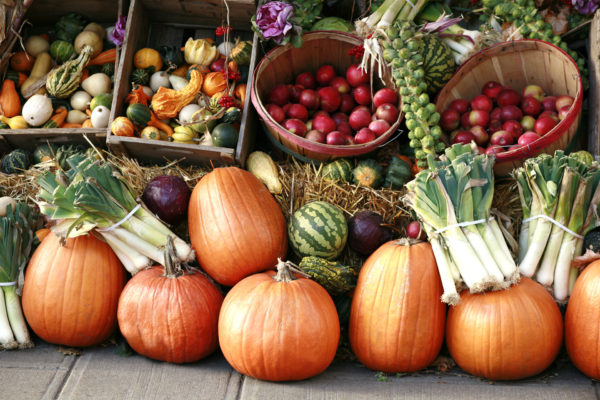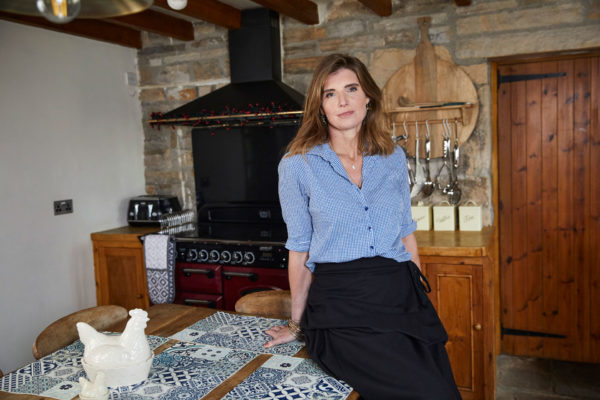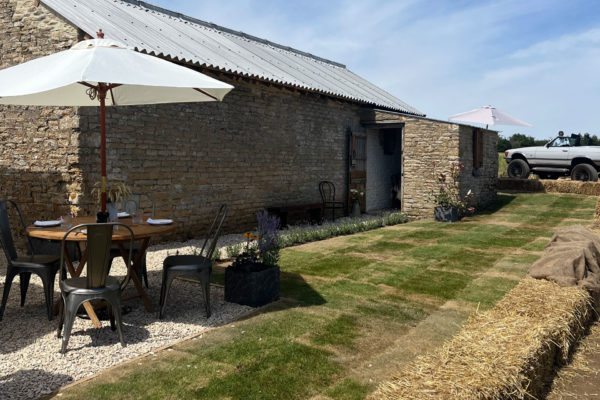Farm Rebellion’s Benedikt Bösel and Tess Ward: ‘Agriculture is the biggest question of our time’
By
2 years ago
We meet the stars of the buzzy new farming docuseries
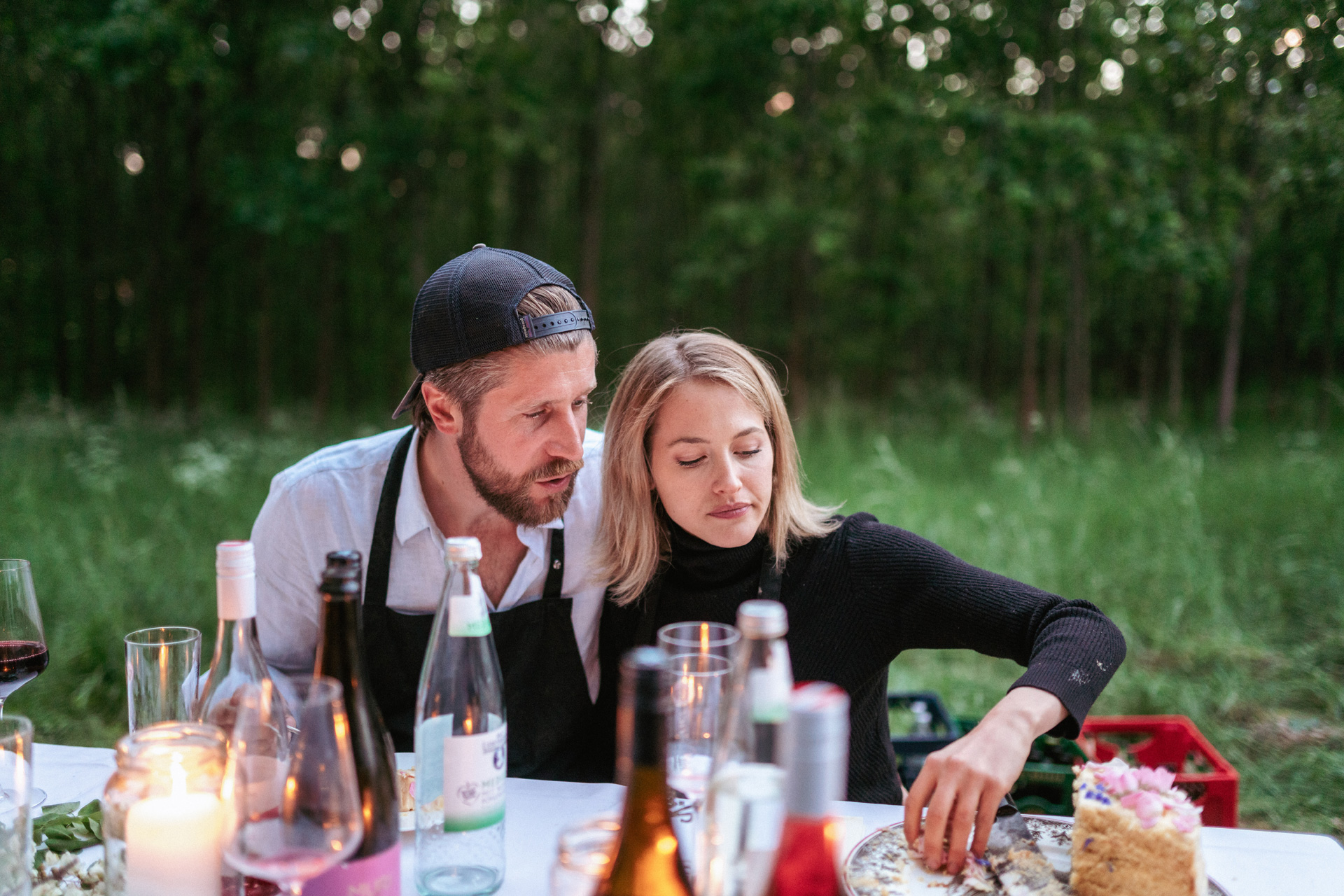
The regenerative farming movement has really taken off in recent years, with an ever-growing brigade of people believing it’s the key to saving the planet. The term can be tricky to define: often it involves organic and biodynamic processes, but at its core is a commitment to preserving soil health. Methods are being explored by pioneers in quiet corners of the world, including Brandenburg in Germany, a town an hour from Berlin known for its untouched nature and dense population. It’s here that you’ll find Benedikt Bösel and Tess Ward, the stars of Disney+ documentary series Farm Rebellion.
Munich-born Benedikt runs a regenerative farm, and focuses on exploring innovative land use concepts to build healthy ecosystems. Tess, meanwhile, is a chef and author, having spent years working in London before moving to the east German countryside along with Ben, where they now live with two young children, working towards a regenerative future together. We caught up with them to find out more.
MORE: 4 More Farm TV Shows To Watch If You Love Farm Rebellion
Q&A with Farm Rebellion’s Benedikt Bösel and Tess Ward
Could you tell us a bit about your background and how the farm came to be?
Benedikt: This is an estate that goes back to the family of my step-grandfather, whose family has lived here for 250+ years. He fled after the war, and came back when the wall came down. He and my parents started re-buying all the land and the forest. That took 25 to 30 years, it’s still going on.
My family is not originally from East Germany, I was born in Munich and my parents and my family were living in the Rhinelands. My mother was the first one to move here because we realised to run a farm you needed to be there. That’s when my mother took over and started renovating the houses, and re-establishing the ecological farm. Because obviously, after the war, everything was destroyed. Because of the soil reform, during those political times, a field would have had 80 to 100 different owners – so the process of getting everything back was a lifelong task, in a sense.
Then we as a family decided that I should take over the farm. But when I was that age, 22, I didn’t think that ecological agriculture in Eastern Brandenburg was particularly sexy. So I went into investment banking first and worked in the financial industry for 10 years, then towards the end venture capital, with a strong focus on sustainability, natural resources and agricultural technology. I also saw the potential of technology, with regards to sustainability and land use.
That kickstarted me looking for alternative land use map models all over the world from the USA, Brazil, South Africa, Australia, Japan and Brazil, and finding all these pioneers of regenerative agriculture. And I thought, wow, why doesn’t the whole world talk about this? I started trying to bring that knowledge here on the farm.
Tess, you’re from London – how did you end up living on a farm in East Brandenburg?
Tess: We met through various work related things – I did a podcast with Benny about agriculture and then I ended up moving to East Brandenburg which was not expected. My background is in food, I did training at Cordon Bleu and was working in the food space in London for many years, doing experiential dinners and events for brands. It was really rewarding, but I think in a sense I felt like something was missing from that. Coming to the farm and learning about agriculture, that was a realisation for me: the source of everything is how food is grown and the soil from which it’s grown.
How does your food ethos tie in with everything at the farm?
Tess: The most important thing is the sourcing of food – I work a lot with all of the products that we grow on the farm. My ethos around food is adaptable to where you’re living and the seasons. I’m very much not pro-veganism, for specific reasons in that when you eat in a way that is so entirely focused on cutting out animal products, it’s very much supporting monoculture, and as a consequence you’re looking at a great amount of insects being killed and a lot of glyphosate and other things like that. I was vegetarian for a period of time, and I think it’s because I didn’t fully understand what a natural way of working with animals looks like. You have to be confronted with it to really understand it.
Where did your interest for food stem from?
Tess: I’ve always really loved food from childhood. My grandma was a great cook and I absolutely loved her cooking – I was definitely spoiled. And my mum was always a good cook, we had great roast chicken on Sundays and quite a diverse range of things. She would experiment: she went to India and came back with a real obsession around spices – turmeric was on everything, even our porridge. My mum taught me that what you put into your body is really what you’re going to get out of it. And although I wouldn’t associate my food as being healthy, all of the ingredients I use are from really good sources. Everything is organic.
Food waste is obviously a huge problem. What kind of techniques do you use in your cooking to combat it?
Tess: I’m a stickler for using everything and if it doesn’t go into a dish, if it’s some skin, some fish or some meat or whatever, it goes to my dog. But I think waste is an inevitable part of cooking, but if you’re buying things in a veg box that’s organic for example, you’ll get a box and nothing has plastic on it. The waste is much less. Things like peelings or trimmings or whatever can all be composted. So I think it’s just trying to buy stuff that’s not in a plastic wrapper.
What does the term regenerative mean for you?
Benedikt: I see that the term is being used by everyone nowadays. And in a sense I have a problem with that, for obvious reasons, but I would also argue that we need to be realistic and reasonable. In so many ways, today we are either heroes or we are the complete opposite. We have to create role models that are relatable.
I think as far as agriculture is concerned, the solution is not a few people starting to plant more trees or to spray a little less. The big problem is that we have designed an agricultural system that is producing five times the cost, ecological costs, social costs, than it is actually being able to take value as far as nutrition is concerned. The system is designed to produce as much as you can for the cheapest possible price – that destroys soil and biodiversity and it’s bad for your health.
Agriculture, and land use, is the biggest question of our time, and I think it’s the solution to many other projects such as biodiversity, adaptation, equality and education. But we won’t be able to change the world by claiming we’re the only ones who do good. Regenerative agriculture for me is not definable by the methods being applied, but it’s an assessment of the soil and the ecosystem at hand.
What does a typical day look like for you?
Benedikt: Every day brings some sort of chaos. Usually our daughter wakes up at around 5am, I’ll go downstairs and make a coffee for us and a bottle for her. Usually I have to be on the estate at 7am, and then it’s really a matter of putting out fires everywhere. I sadly have to be much more in the office than I would like to be. And Tess, I don’t know how she does it – she’s had her second child in two years, she’s learning German, she’s just finished her masters in neuroscience, and she’s writing a second cookbook.
How did you find the experience of filming Farm Rebellion?
Tess: I really enjoyed it, but it was also incredibly intimate and a bit scary. We started three weeks after my daughter was born, I was breastfeeding and hormonal. Before we started there was a bit of fear around that, but I always joke it’s the best home video you could ever get. It was amazing and rewarding, but there’s a lot of trust in the process.
Benedikt: It was an incredible opportunity, because never again will you be given such an opportunity to show the topic of farming to such a big audience. The filming was so much fun, we spent 100 days with the team so they became close friends and they became big fans of what we do. The best part for me personally was when we were not at home – I met some cool pioneers like Isabella Tree, she’s such an amazing person.
What’s really important is that societal shift: understanding the value of farmers’ work and the importance of land use for our futures and for the next generation, and falling back in love with nature and food. And learning how healthy soil leads to healthy food and healthy people. These are such important things in our time.
Farm Rebellion is available now on Disney+


